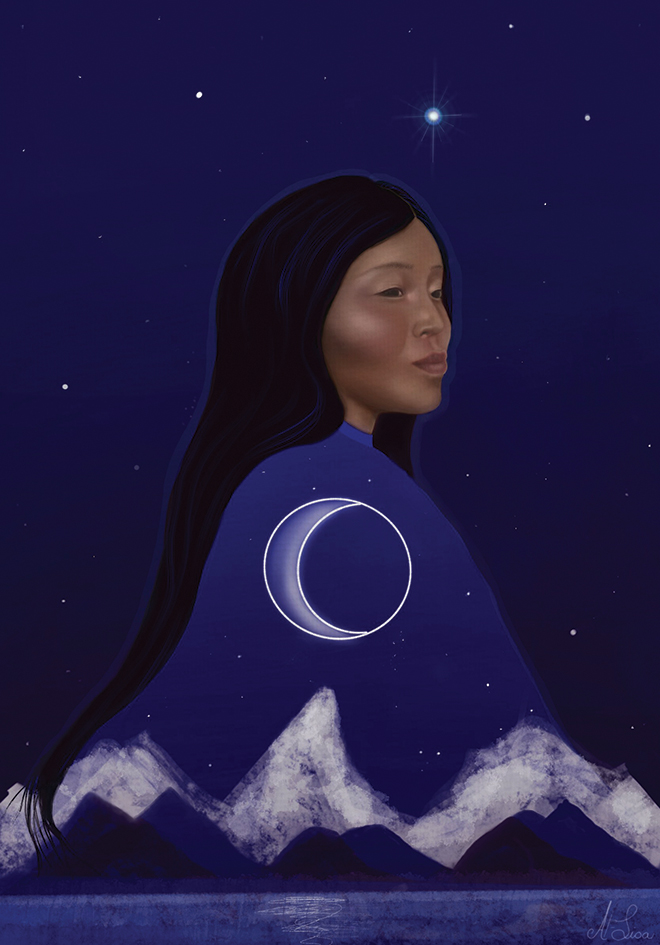By Lisa Bland, Publisher/Editor-in-Chief, The Green Gazette –
Dear Readers,
As the daylight grows with each passing day, it’s time to emerge from winter dreams into the promise of spring.

We made it to 2020, and in this dawning of a new decade, it’s ever more apparent that we live in a global community. What befalls other people and places befalls us, too. We are in this together.
I remember thinking about 2020 as a far off, futuristic era with many possibilities, strange and wondrous, yet wrapped in a sense of foreboding for the future. I loved to read as a child and teen, and travelled in my imagination to distant lands and realms. I gained insight into people’s thoughts and worlds and became intrigued by cultural and
ecological diversity.
At no other time in history have so many gained access to raw materials with which to build or create the reality they choose. Through social media and the internet we can also connect with every corner of the globe and gain insights into the impacts the global economy has on the planet. In many direct and indirect ways, the Western world view impacts not only biological but cultural diversity. Indigenous cultures are often the strongest voices to rise up against the destruction of the natural world and to address the climate emergency. In the past year alone, the impacts of burning and land-clearing in the Amazon rainforest, the wildfires in Australia, the Canada-wide uprising regarding Indigenous rights and title in Wet’suwet’en territory, the vast reduction in wild salmon returning to spawn in the Fraser River, and the loss of Arctic ice are heartbreaking and conflict-laden issues. Yet, regardless of our cultural roots, we are bound together on a common Earth with the same genetic inheritance and raw capacity to respond to challenges.
The diversity of world cultures arose out of the ways the human imagination relates to the environment, and the cultural lens people developed brought their lives meaning, value, and a moral compass for navigating the world.
Canadian anthropologist and UBC professor Wade Davis coined the term “ethnosphere,” which refers to the sum of all thoughts and intuitions, myths and beliefs, ideas and inspirations brought into being by the human imagination. He suggests that the ethnosphere is humanity’s greatest legacy and that even though half of the 7,000 cultural languages spoken on earth are at risk of disappearing, this and any path to the future has not yet been written.
Davis suggests that cultures are not destined to fade away nor are they suspended in historical versions of a pre-industrial past without progression. Instead, they are dynamic and continuously evolving with complexity and uniqueness in the face of modern-day challenges. He believes that every culture has a model of reality and a unique answer to the question of what it means to be human and alive.
“The real central lesson of anthropology is that every culture has something to say,” Davis says. “We in the West, with our way of thinking of the natural world, we are not the norm—we’re the anomaly.”
On a recent CBC Radio Ideas program called Into the Wild, Davis reflected on the 10 years that have passed since his 2009 CBC Massey Lectures, “The Wayfinders: Why Ancient Wisdom Matters in the Modern World.” His answer to the question about why ancient wisdom still matters is two words: climate change.
Davis believes that the diversity of the cultural imagination is what holds the seeds of resiliency for the future of humanity—and its present. It depends on understanding and listening to Indigenous peoples, he adds, in what they know of the world, what they have to teach us, and how they can help us find a way to survive and thrive.
Davis suggests that the greatest threat to culture is power, which in its most obvious form is in industrial developments and forces that want access to the land. This power also manifests in the colonial system that has persuaded people and perpetuated the educational story that other cultures are inferior to the dominant culture of the West.
But he is hopeful and believes that if humans are the agents of cultural destruction, they can also be facilitators of cultural survival.
In places such as Columbia, a cultural revival has occurred for Indigenous people through securing the legal land tenure to an area of land for 57 ethnicities. Out of this, a new cultural dream has been born. Davis believes that reconciliation, restitution, and the act of returning land title to Indigenous people allows a place for cultures to move forward in strength and diversity to face the challenges of the future.
The voices calling for action to address climate impacts are getting louder. Perhaps we are at a time where the collective human imagination, in all its technological savvy, along with the wisdom of Indigenous Peoples in their interconnectedness with the natural world, can ignite the fire of change that pushes for alternatives to our carbon and fossil fuel based reality quickly enough to take a great leap forward. With the climate emergency urging us to re-structure our material world and value systems, the time for action is here. The wisdom of our collective ancestors and genetic inheritance is urging us to evolve.

